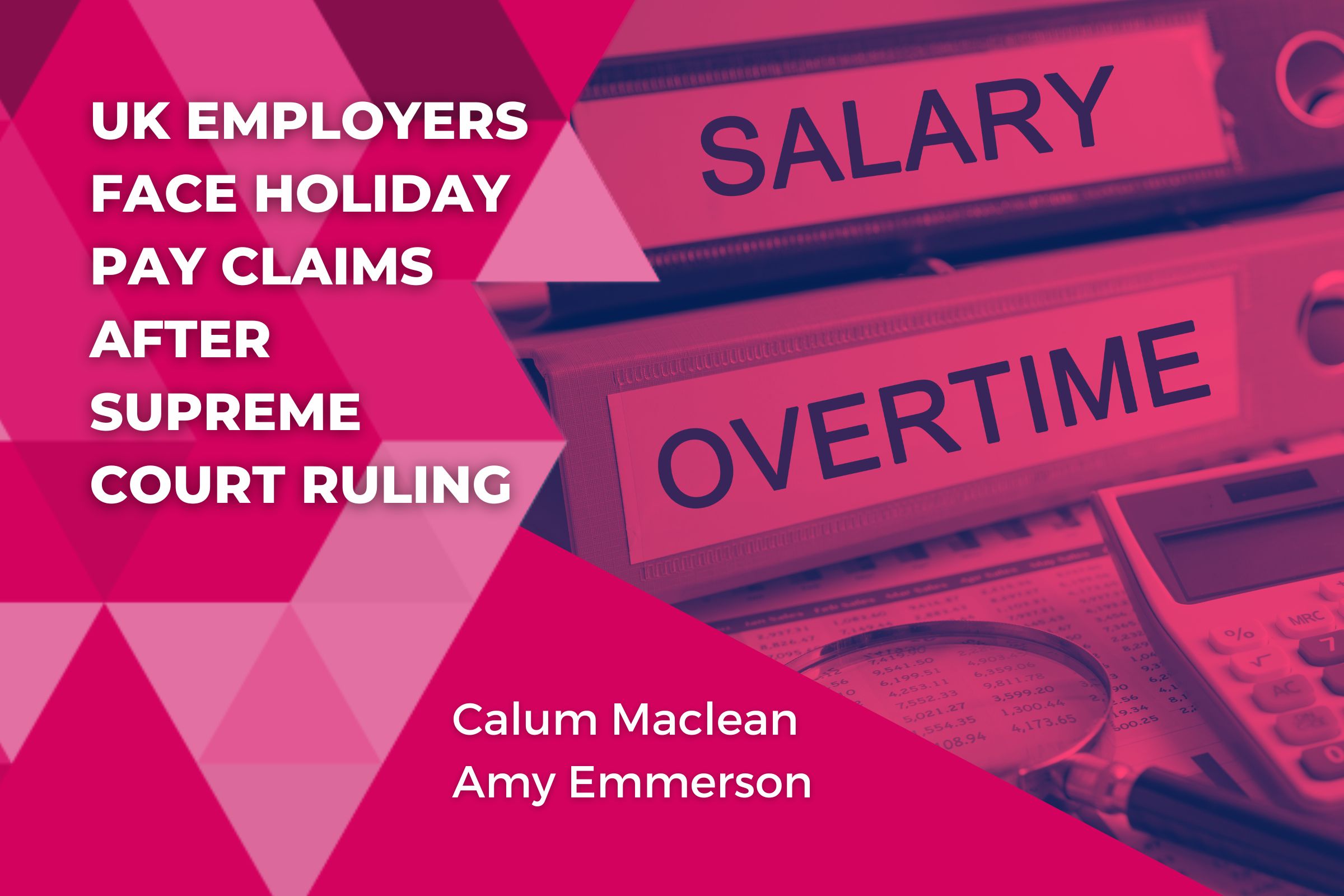
A landmark decision by the United Kingdom’s Supreme Court has held that employees can claim for historic underpayments of holiday pay even if there are gaps of three or more months within a series of deductions. Following the Judgment delivered in Chief Constable of the Police Service of Northern Ireland v Agnew, employers must consider overtime when calculating holiday allowances.
The claim was brought by over 3,700 police officers and civilian employees under the Employment Rights (Northern Ireland) Order 1996 and the Working Time Regulations (Northern Ireland) 2016, these implemented the EU working time directive and are not dissimilar to the legislation in Great Britain – the Working Time Regulations 1998. The claims were brought in relation to what the Claimants argued was underpaid holiday pay against the Police Service of Northern Ireland and the Northern Ireland Policing Board.
Under the aforementioned Working Time Regulations (Northern Ireland), the employer adopted the position that only basic pay ought to be used to calculate holiday pay. It was subsequently accepted that this should not have been the case and that the employees should have been underpaid as overtime had not been taken into account in respect of their holiday pay.
Whilst the parties agreed there had been an underpayment and that holiday pay should have been calculated to include periods of mandatory overtime, the issue that remained in dispute was the period over which the claim was entitled to extend in recovering the underpayments. The Working Time Regulations (Northern Ireland) contained a limitation provision which effectively stated that the employees could only recover the underpayment for the period three months prior to recovering their claim.
The Claimants sought to rely on the limitation provisions contained with the Northern Ireland Employment Rights Order which provide for a three-month limitation period from the end of a “series” of deductions from wages. Such a provision mirrors what is included in the Employment Rights Act 1996, as it applies to the rest of the UK.
The Supreme Court concluded that the period during which a claim can be brought is three months from the date the last payment was made, but that a gap of three months or more does not break a series of deductions – overturning a decision which was originally reached in the Employment Appeal Tribunal case of Bear Scotland Ltd v Fulton [2015]. Accordingly, a "series" of deductions will apply to deductions which can be linked together going backwards, despite a gap of more than three months.
What amounts to a “series” in this sense is essentially a question of fact, where all relevant circumstances must be considered. In this instance, as each underpayment was an underpayment of holiday because it had been paid at basic rate only and was a continuing course of conduct, this was sufficient to link the deductions as a series.
For employers based within the UK, it is possible that this ruling will have consequences for many organisations. As it stands, some protection for employers is afforded under the Employment Rights Act 1996, as claims for unlawful deductions from wages can only look back at deductions over a maximum of two years (albeit, a civil court claim could look back at up to five years of deductions in Scotland or six years in England). Even with such restrictions in place, it is possible that many employers could be exposed to significant financial risk if they are not ensuring that they are paying their staff appropriately when on annual leave.
If your organisation needs help with annual leave calculations, drafting robust procedures and policies around overtime or you want to discuss how this judgment might impact on your business, we invite you to call us now on 0141 473 6784. Let us help you navigate these complex matters.
Our team is dedicated to working closely with you to gain a thorough understanding of your business, its unique needs, and desires. We strive to provide tailored solutions that work and truly make a difference for you, your employees, and ultimately your business. Our goal is to become the firm that you trust to make your world better.














